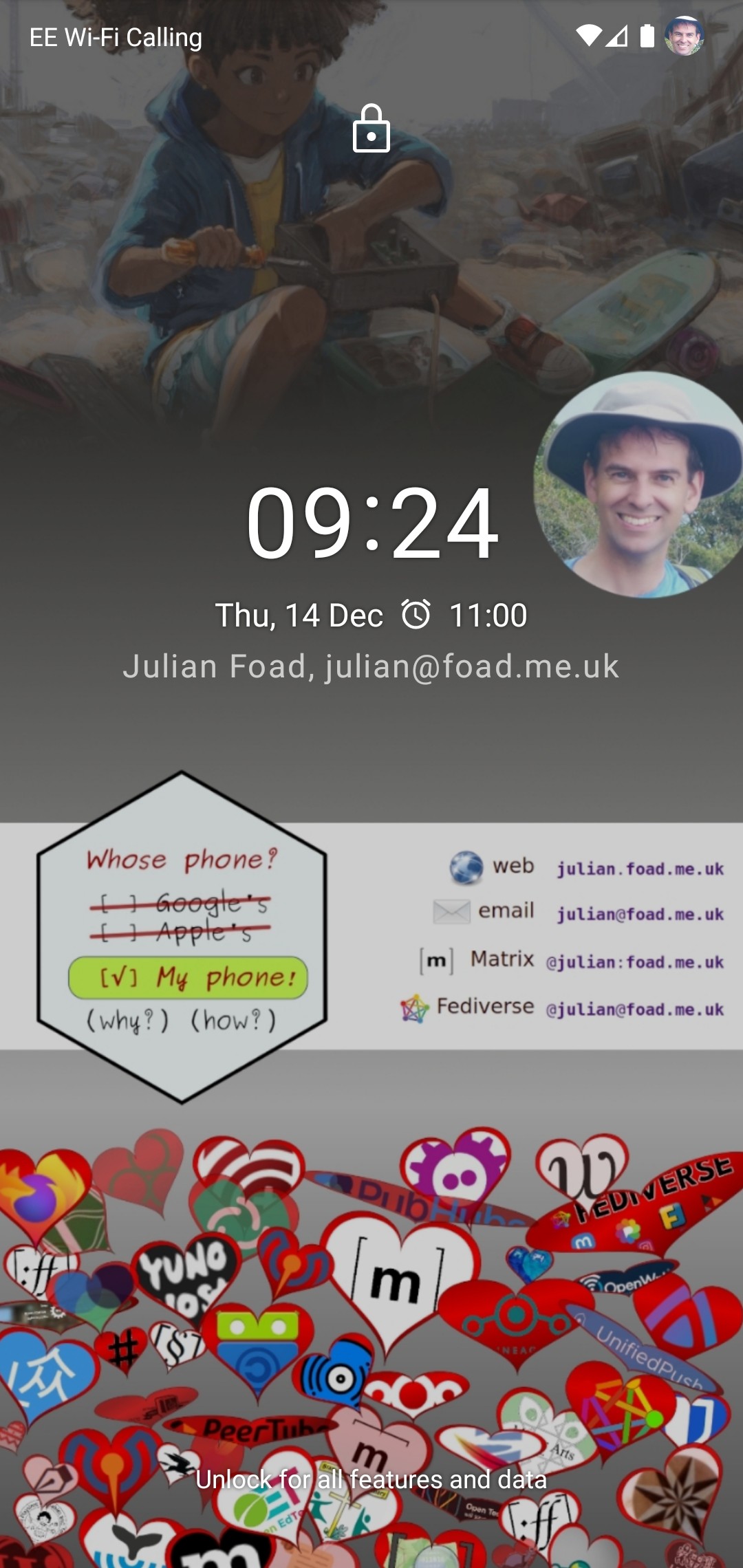Fun with PineTime Smart Watch
As I wrote before, My smart watch is open source. Awesome!

Let's make this fun — for children in particular — and show how we can bend the device to our will because FOSS means it's truly ours, fully under our control.
As I wrote before, My smart watch is open source. Awesome!

Let's make this fun — for children in particular — and show how we can bend the device to our will because FOSS means it's truly ours, fully under our control.
A moderator asks someone to disclose an attribute of their real identity. The recipient provide the requested attribute, using Yivi to attach a cryptographic proof.
In the last update I introduced a demo of attribute disclosure. I have since completed the main TODO there, making the disclosure flow happen on the recipient's account. (In the first demo the moderator's role and the recipient's role both took place in the same login session in the same account.)
This week I have been thinking about how we will need to improve the user experience, or flow, of this disclosure request and response.
Writing the dialogue boxes and associated logic by hand was tedious and buggy. Rapid prototyping would be helpful. I decided it's time for me to learn a better way. Being new to UI design and fervently open-source principled, I searched for a FOSS solution and found Quant-UX.

As if I didn't have enough else to do with my evening, I spent it making this. Why?
A non-Amazon wish list, anyone?
I once thought I was making a neutral choice to shop at Amazon, and that their wish list was a nice convenience.
Just like I one thought Google was my friend, and signed up for their “free” email. I deeply regretted that and have now deeply deGoogled.
Nowadays I recognise a greedy mega-corp when I see one, with everything wrong that goes along with that, and so I shut down my wish list there and almost completely avoid shopping there.
![]()
Android or iPhone — either Google or Apple delivers our messages — surely? You don't accept that?
Time I Learned: there are freedom-respecting phones.
People who do not want to depend on Google or have them control our devices are using android-compatible but not google-controlled phones, a.k.a. “degoogled phones”. We have been asking (ourselves) for several years if we can have google-free push notifications. Thanks to the developers of the UnifiedPush standard, the answer is now, “yes!”
But why?
![]()
UnifiedPush open-standard push messaging complements degoogled android-compatible phone OS's such as LineageOS.
People who do not want to depend on Google or have them control our devices are using android-compatible but not google-controlled phones, a.k.a. “degoogled phones”. We have been asking (ourselves) for several years if we can have google-free push notifications. Thanks to the developers of the UnifiedPush standard, the answer is now, “yes!”
The open standard UnifiedPush.org has now been created. While not a large number yet, a useful handful of apps already support UnifiedPush, including several matrix and fediverse apps. For its servers and the associated client-side “distributor” component, there are multiple successful implementations deployed.
More and more I find myself using the fediverse (based on ActivityPub) alongside Matrix, and the two protocols complement each other nicely in some ways. In other ways their differences seem needless and jarring, only getting in the way. I'd like to be able to offer my contacts the free choice of which protocol to use, depending on what kind of communication they intend (public-ish versus private or group-ish), without everything else being different — especially the user identifier/addressing but also many lesser issues such as the existence of user profiles.
I have long remained hopeful we'd get use profiles eventually. Conceptually it's not a big deal. So where are we now and where are we going?
This article opens with the well known idea of using (free/libre/open) tech for teaching (free/libre/open) tech skills, but it is not about that, at least not directly.
Tandoor is a self-hosted open source recipe manager. I have been running it in my YunoHost test server, in order to try it out, for about a year, collecting 21 recipes in it.
Basically I'm not satisfied with it, for my needs.
It's quite nice in some ways but terribly limited to one particular fussy attempt to organise a recipe in a particular way with steps, ingredients categorised by name and quantity, etc. There's no way to include recipes that don't fit this format. No way to include a web page (that doesn't import neatly into this very precise format) or a text document that I wrote or a PDF scan of a paper page. No way even to represent “fuzzy” ingredients like “some herbs of your choice” or “about 2 or 3 cloves of garlic”. Each ingredient has to have a number and a unit specified, and there are only hacky work-arounds like defining the word “some” as a custom unit. So I'm still running it for fun, for a small handful of recipes I imported (sometimes with awkward manual clean-up required) from web sites, while most of my recipes are still on scraps of paper or PDF scans or books or web sites that don't import.
Open tech, be afraid. Be very afraid. Microsoft owns both Visual Studio Code “VSCode” and MS-GitHub, two intertwined and utterly proprietary product-service ecosystems with a bit of open-source in their core to lure us in. Because they love open source? Yeah, no.
Soon after leaving GitPod whose technology links the two, Geoffrey Hunt last year explained their strategy and what it's doing to our open tech world, in a great and “harrowing” article, “Visual Studio Code is designed to fracture” https://ghuntley.com/fracture/
“The future of software development tooling that is being built is closed as ****, and people seem to be okay with it...”
This is why MS-GitHub is not our friend.
This is why falling for their trick, disguising MS-VSCode as a neat “free” editor, will come back and haunt and hurt us.
Vendor lock-in double-whammy. Using open source as “a financial weapon”.
”... the biggest challenge for Gitpod, GitLab, Datacoves, OpenBB, Foam, et al lies ahead – developing open language tooling for each community where Microsoft has forked the communities over to proprietary language servers...”
If we have a grain of public spirit, if we are motivated at all by the Freedom that's supposed to be afforded by Free-Libre Open-Source Software, we must #GiveUpGithub, we must recognise the trap, we must choose truly open #FreedomTech.
Related:
#awesomeFOSS #selfHosted #GiveUpGithub #DitchDiscord #forgeFed #forgeFederation #Forgejo #Codeberg #useOpenTools